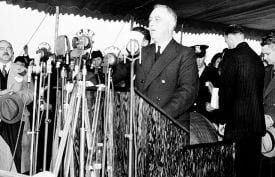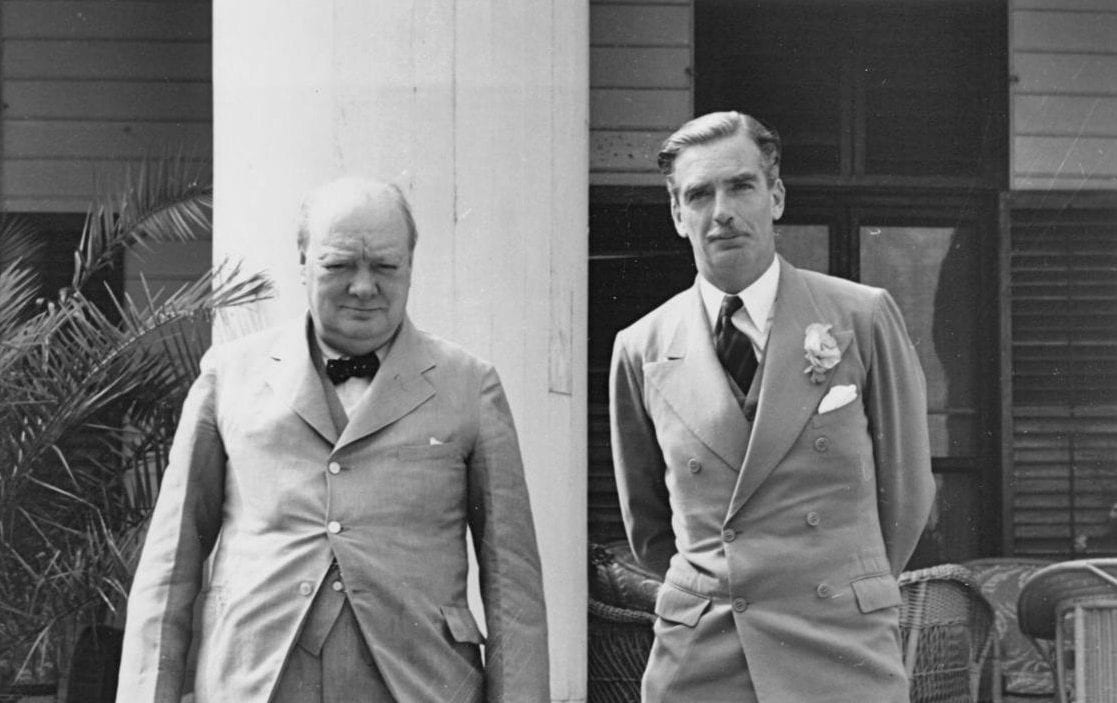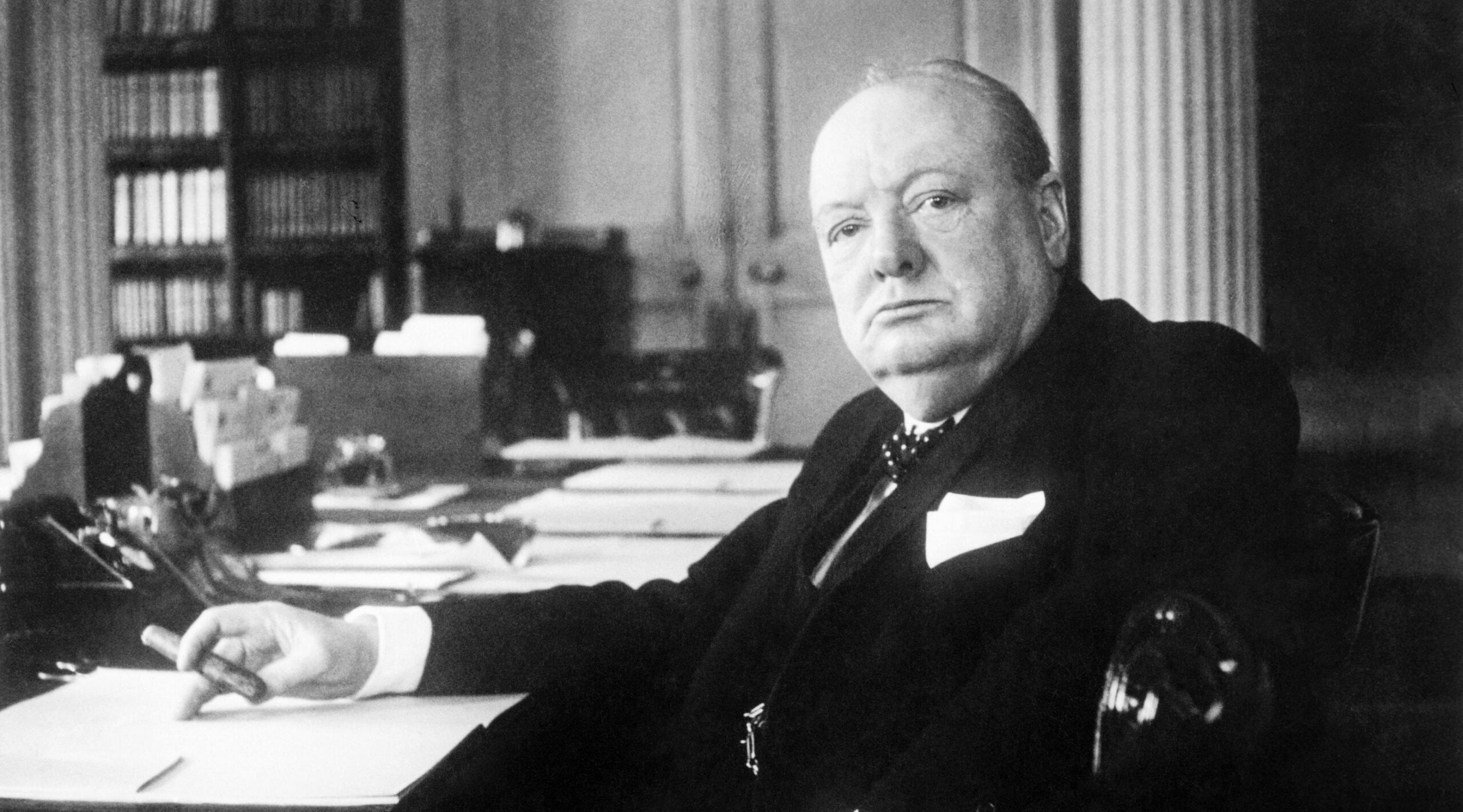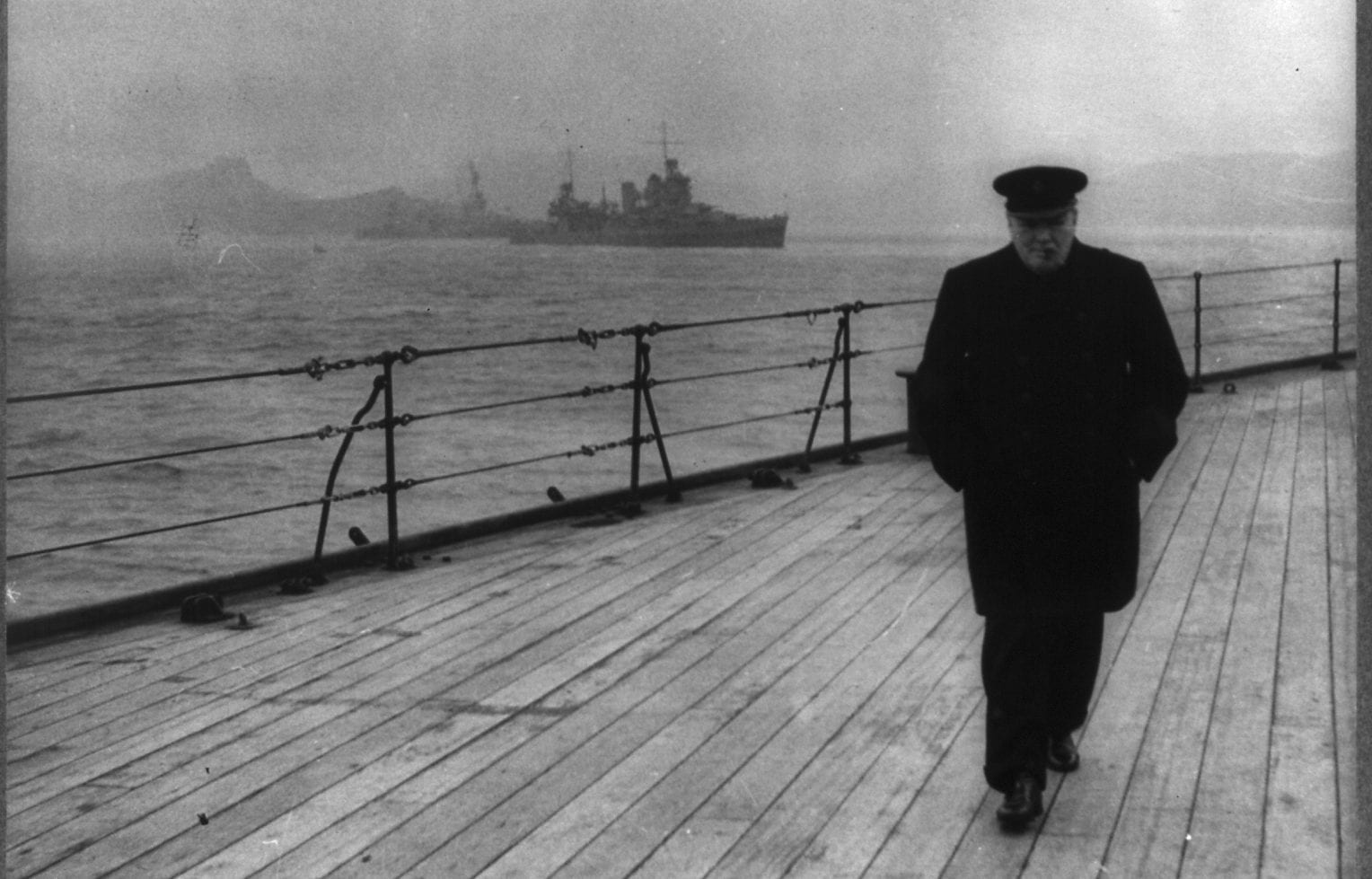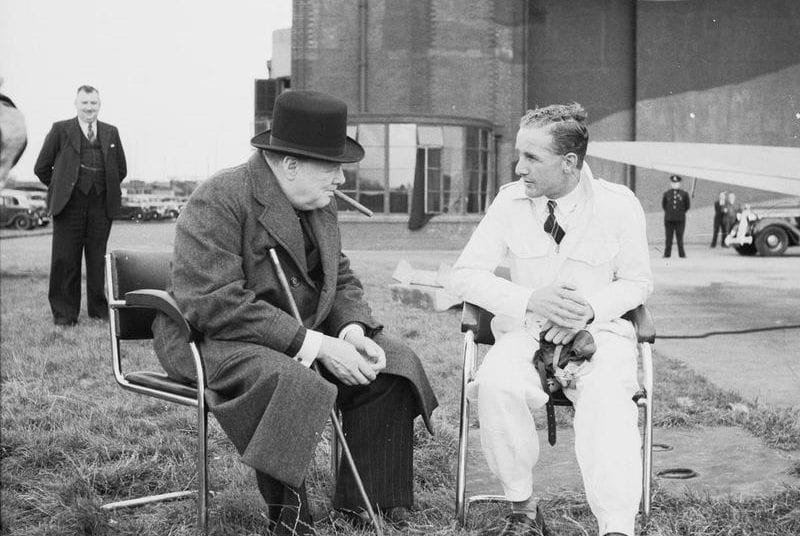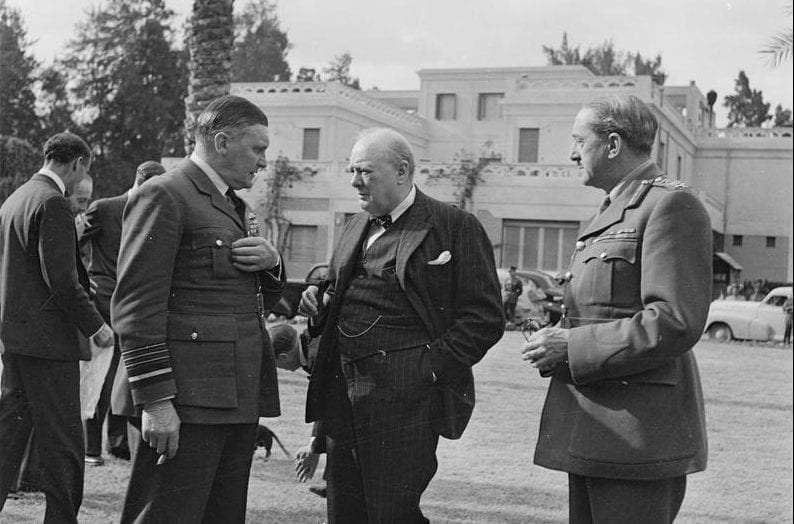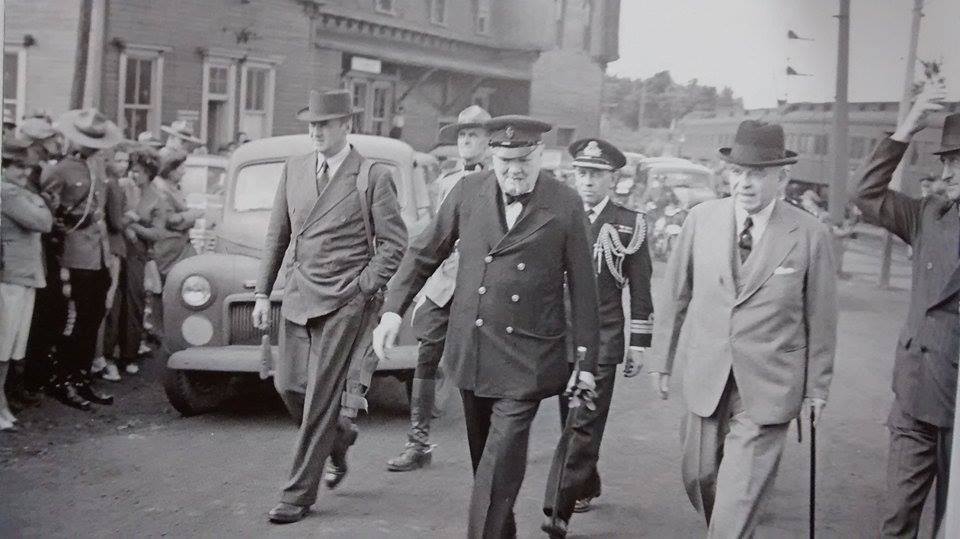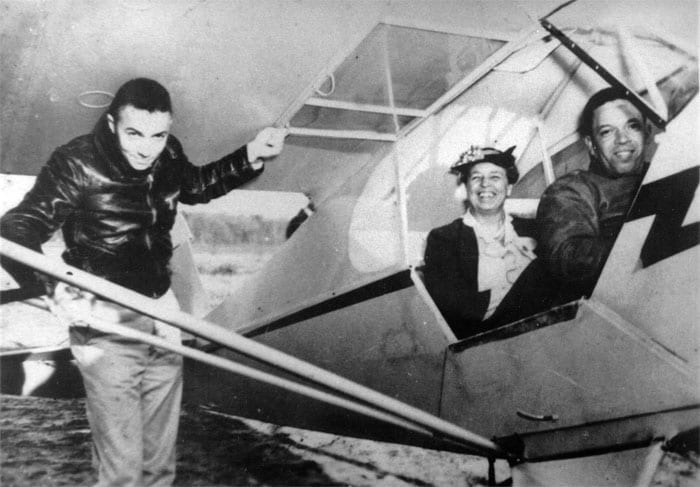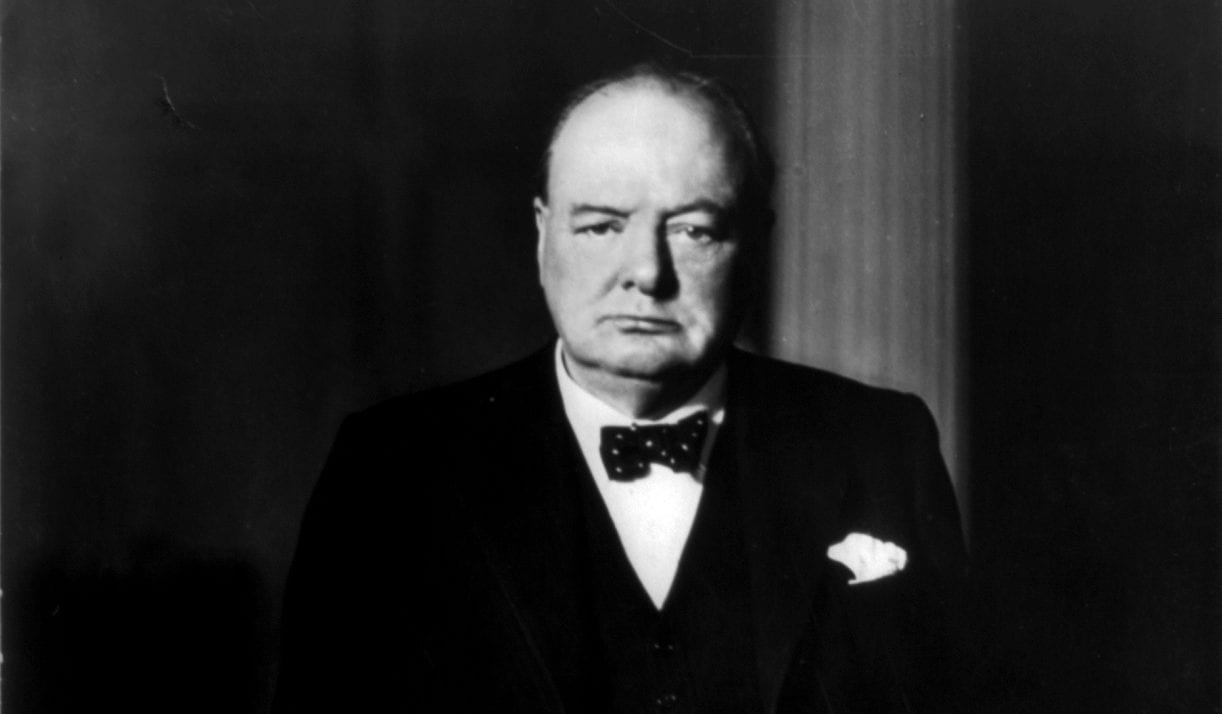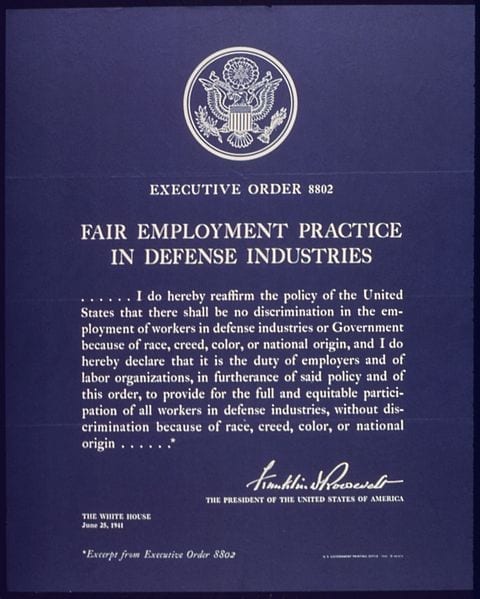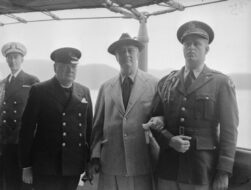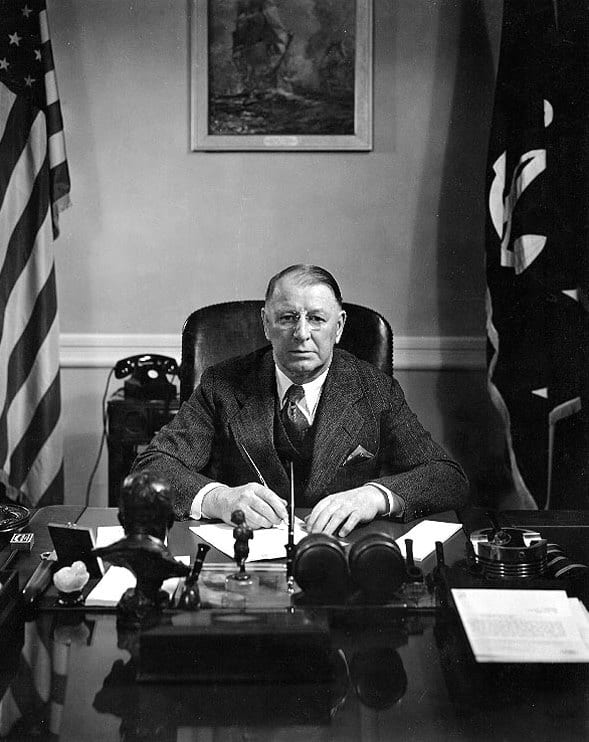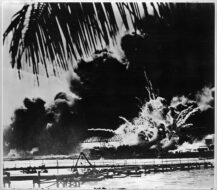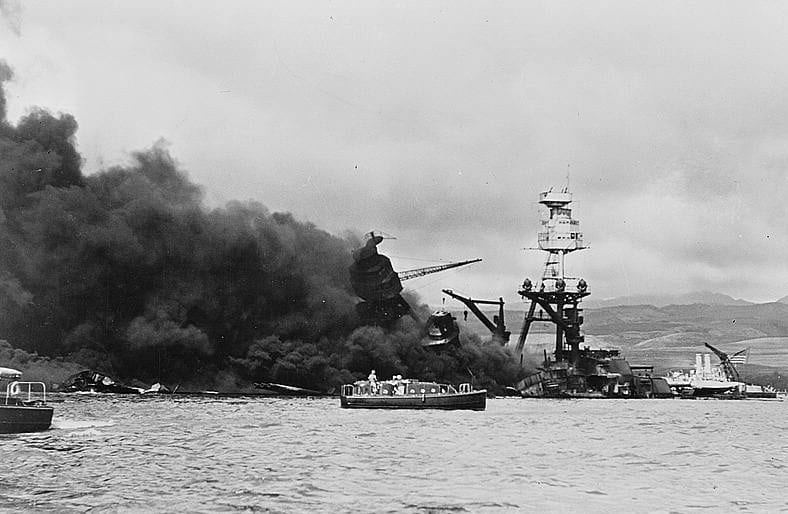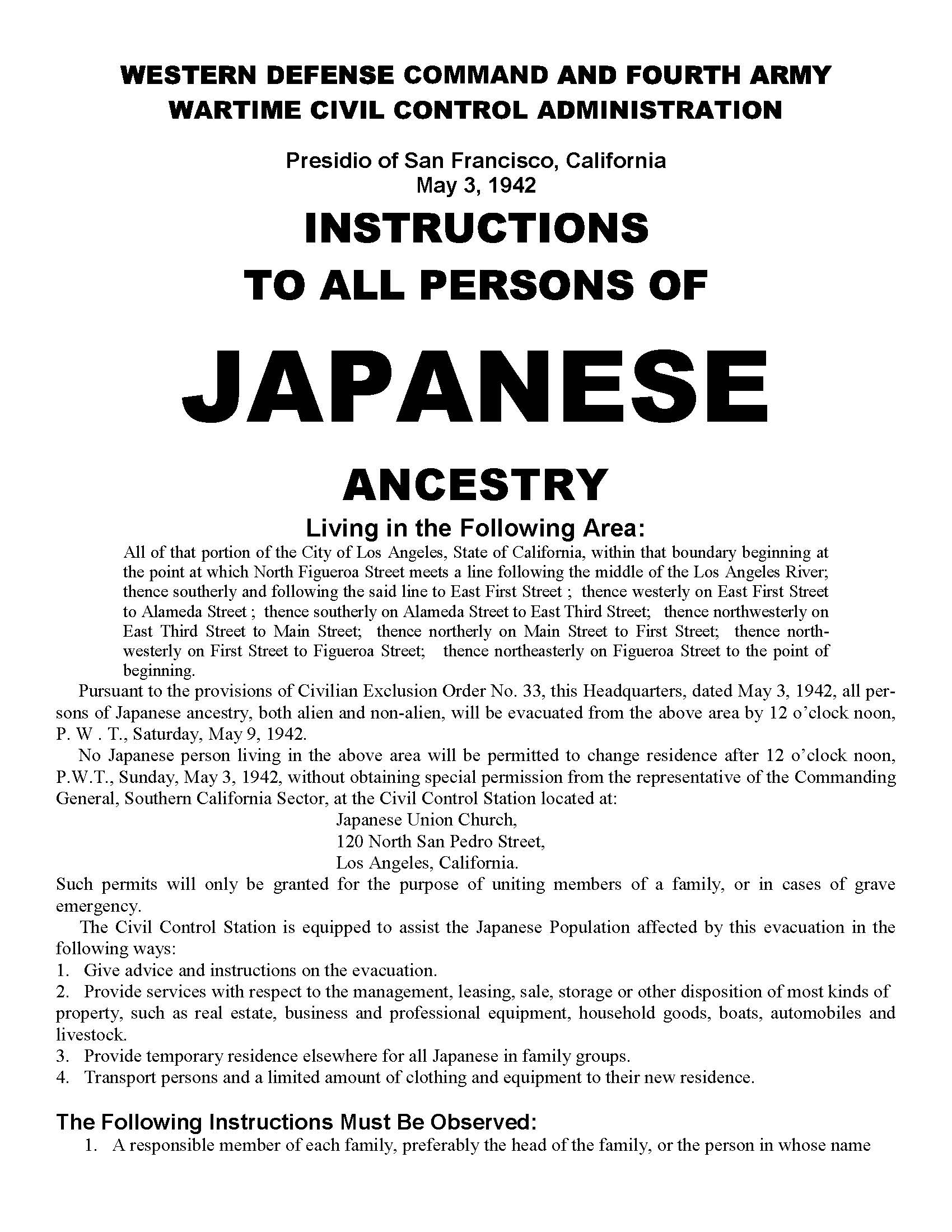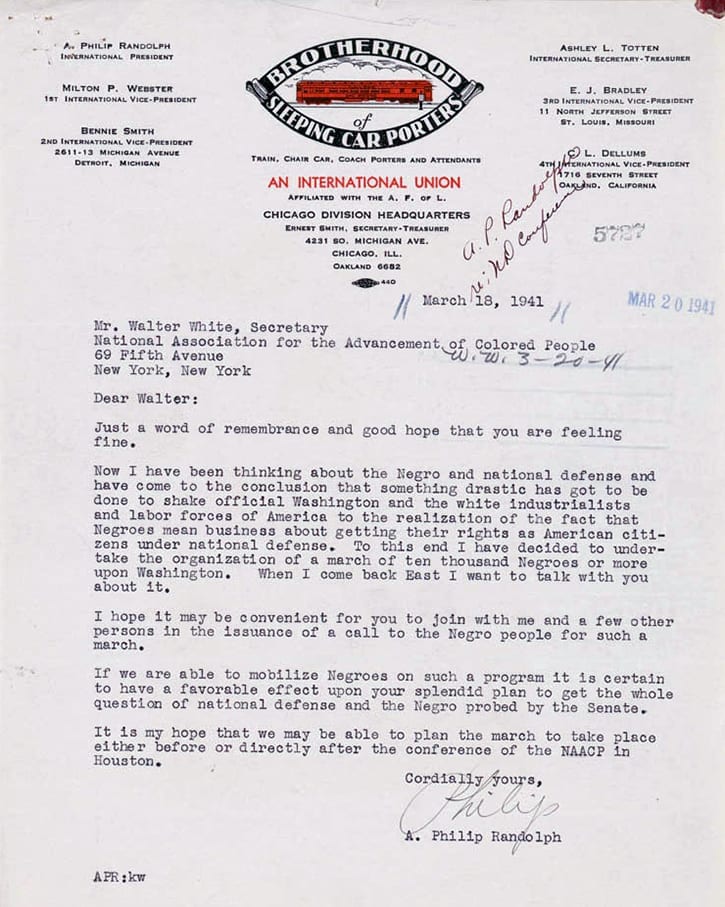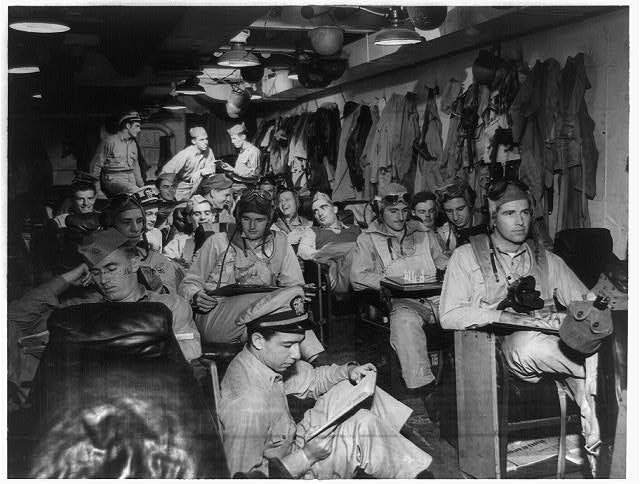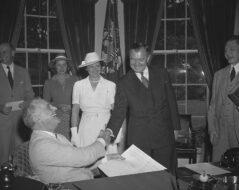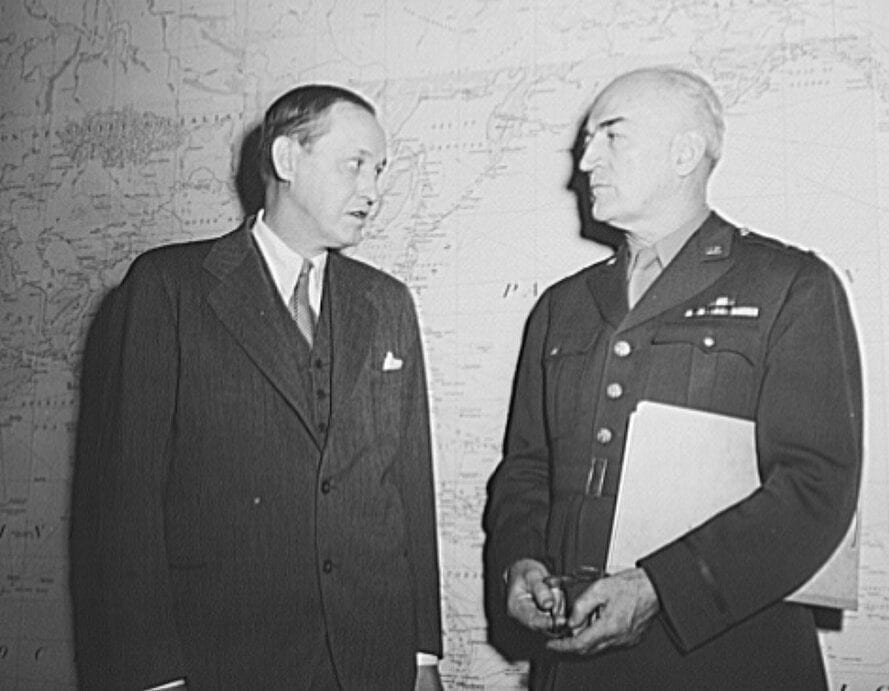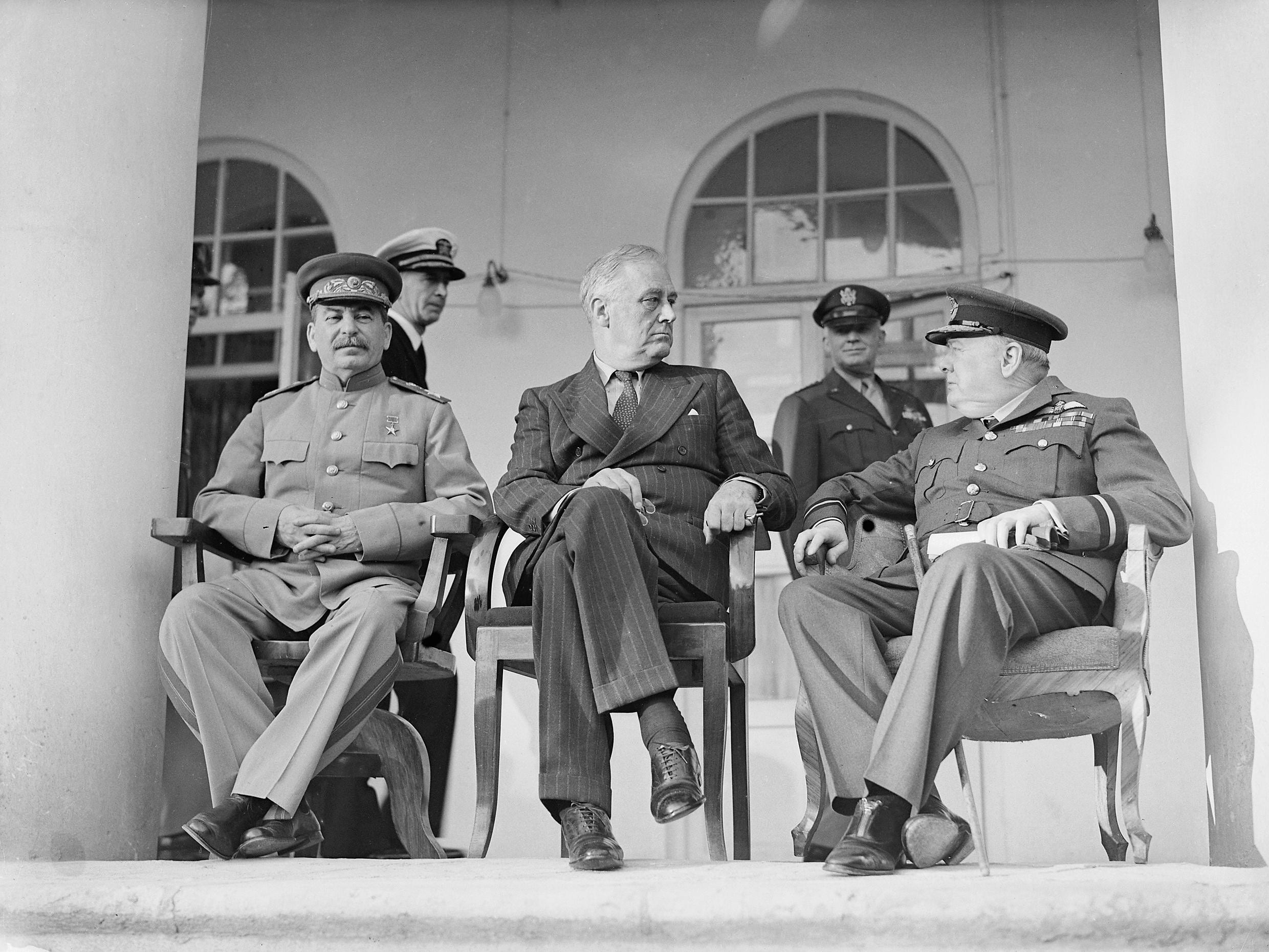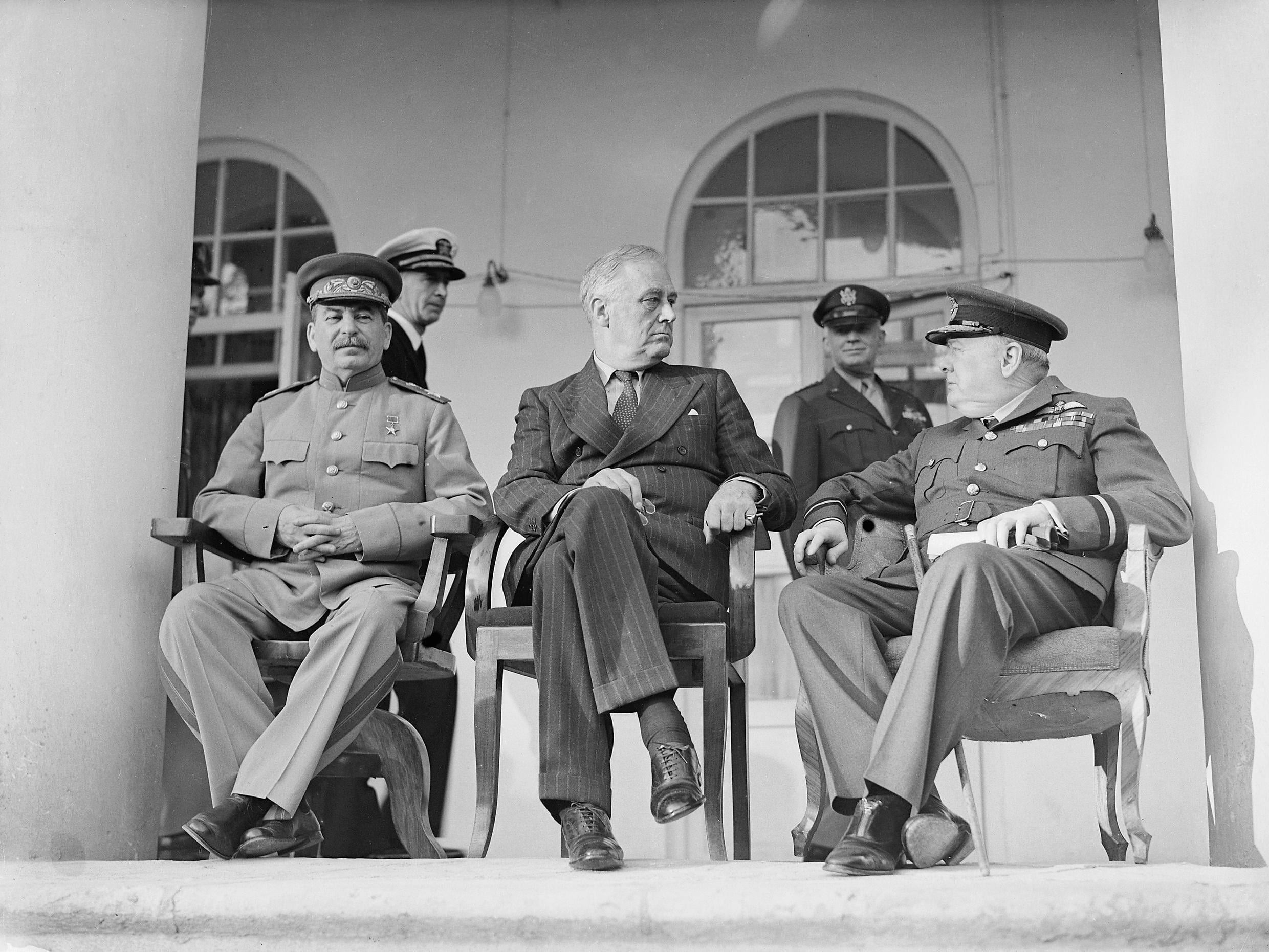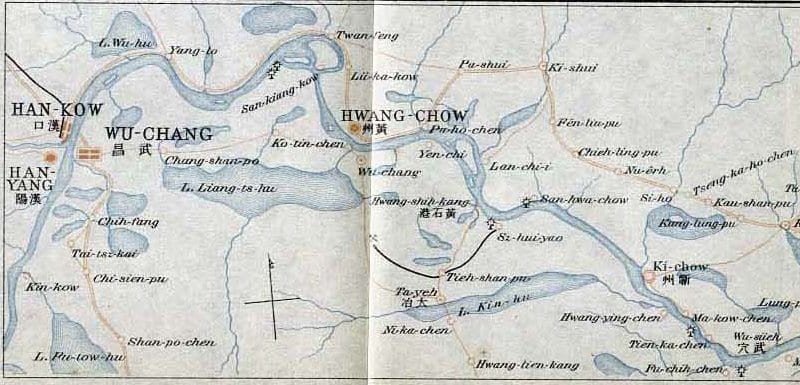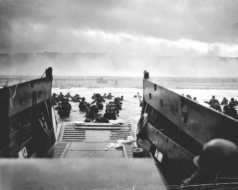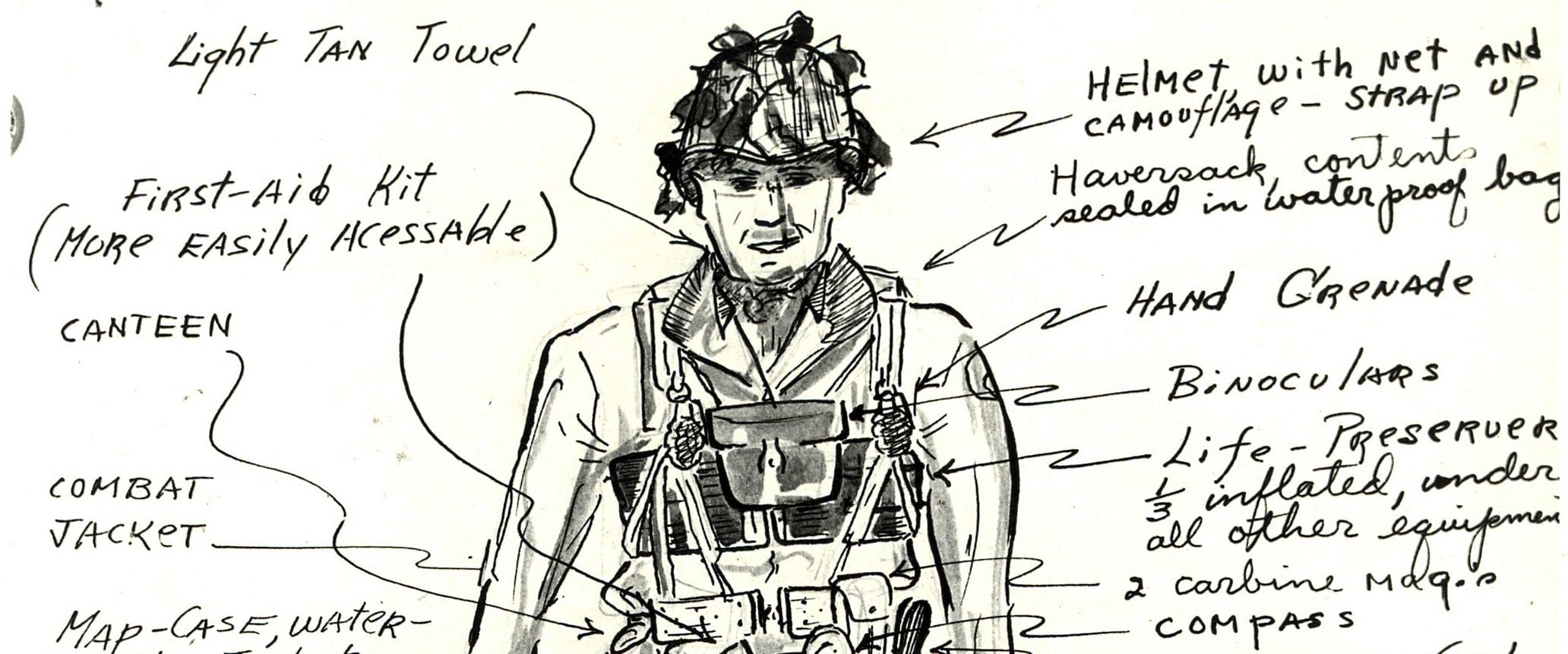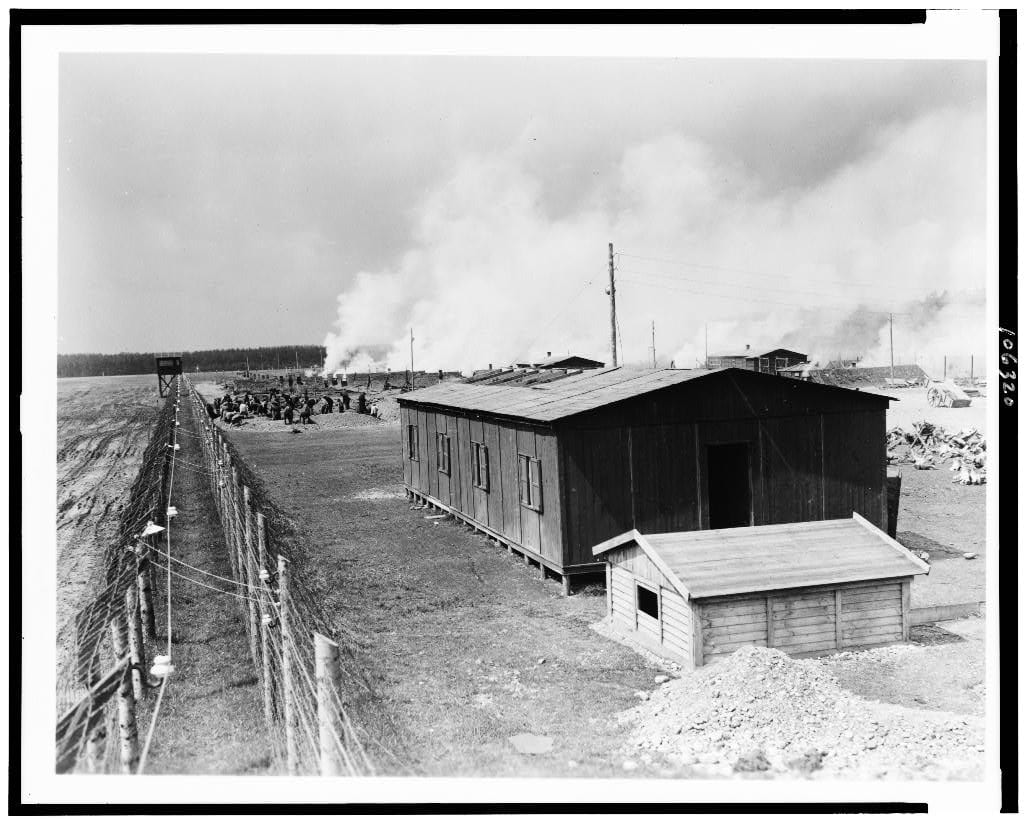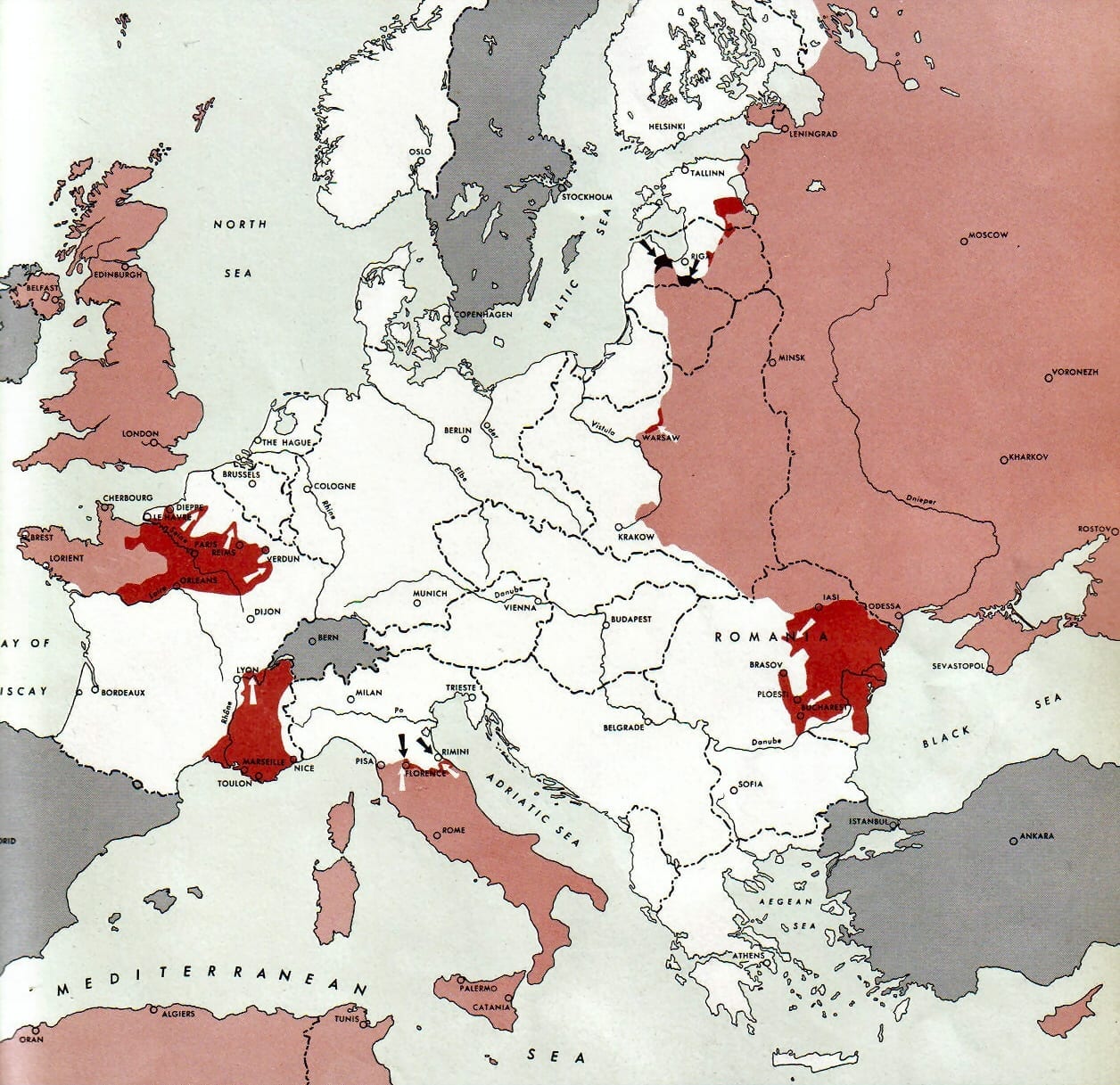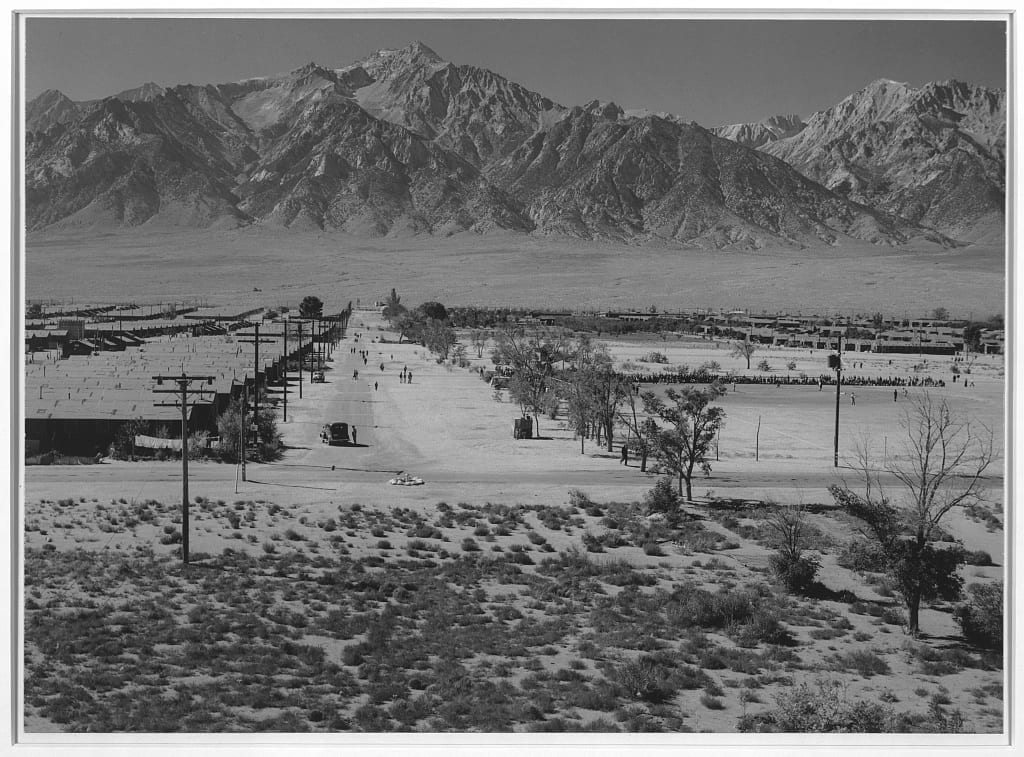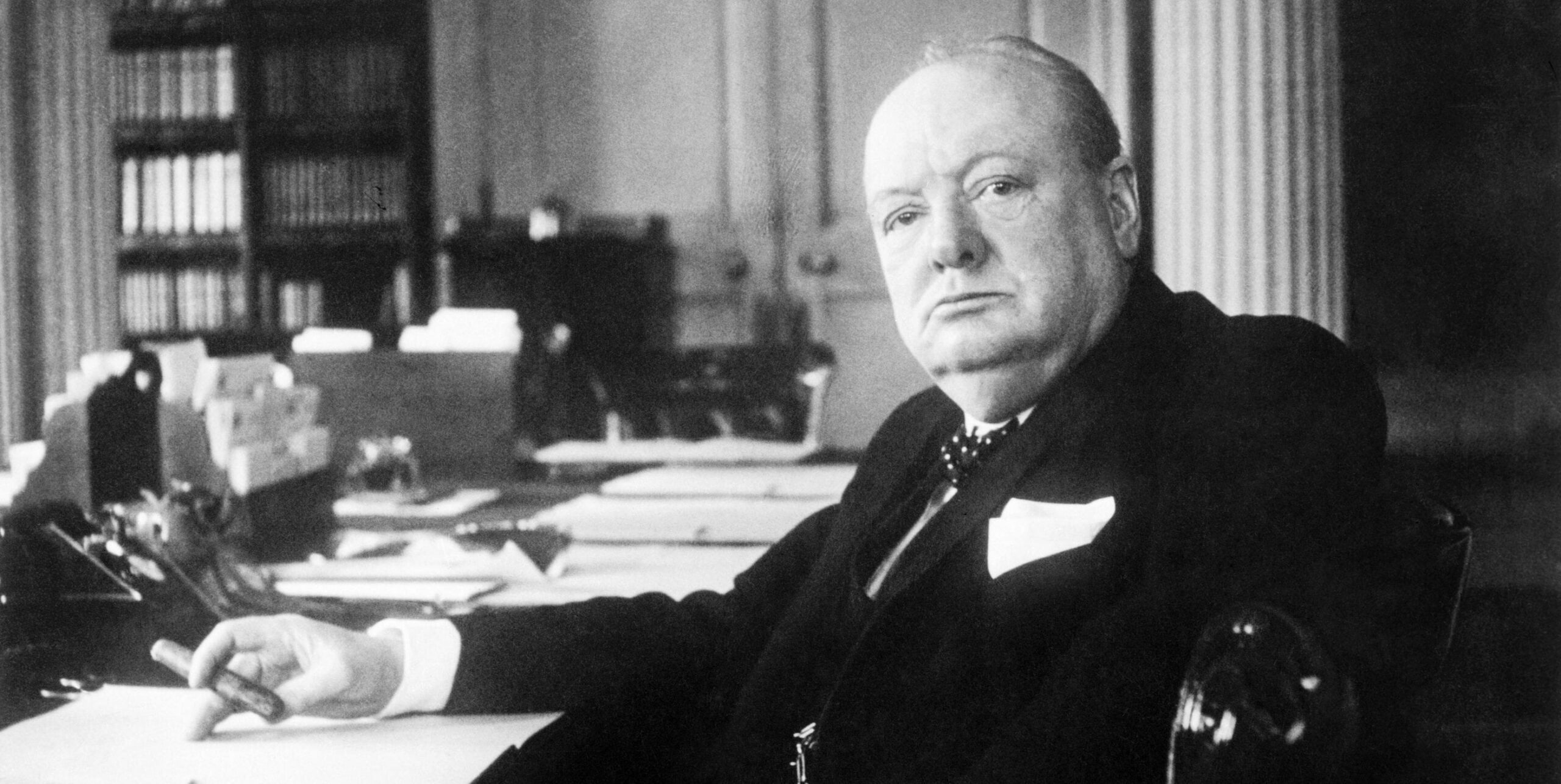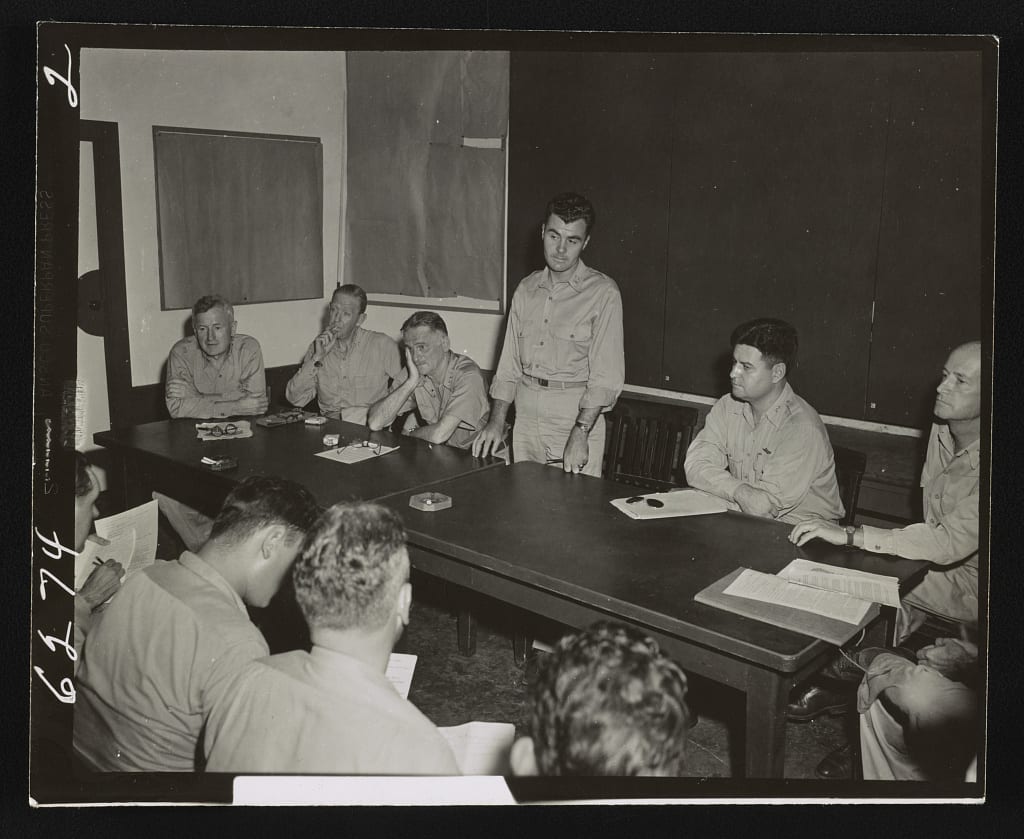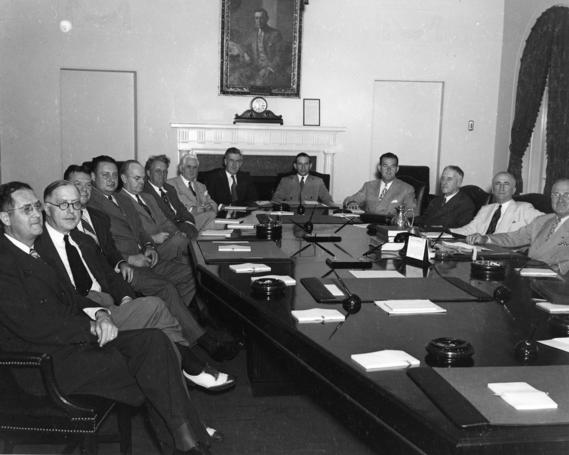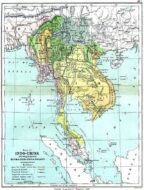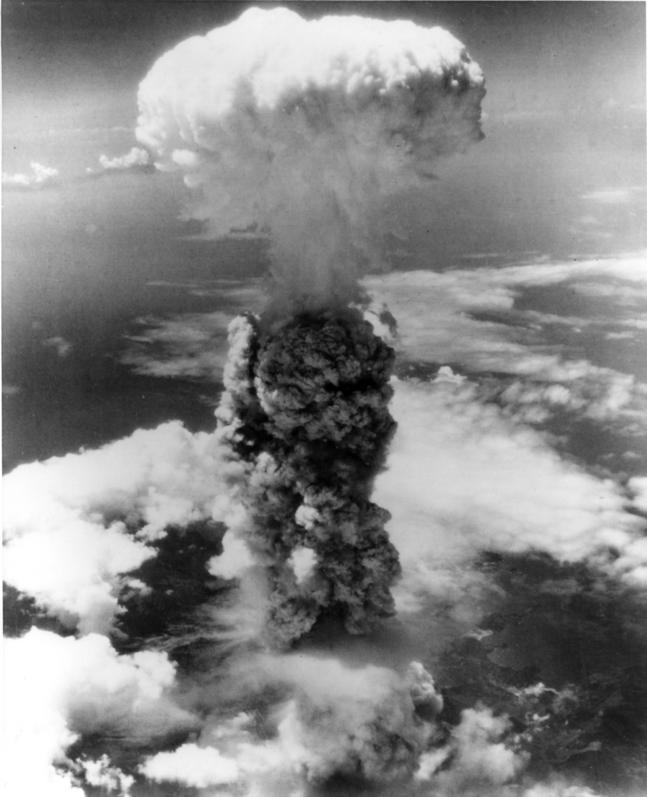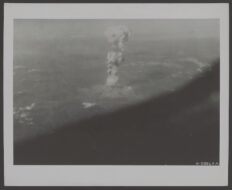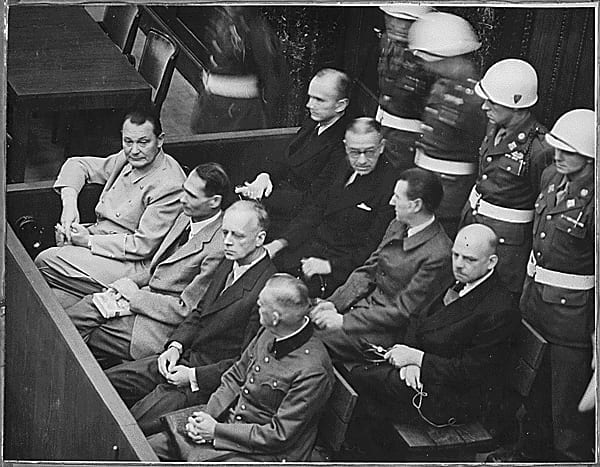
We are here to consider a bill designed to promote the defense of the United States. I shall not discuss the technical details of the proposed measure, since that will be done by other departments of the government more directly concerned with these matters. I shall place before you briefly the controlling facts relating to the manner in which the dangers that now confront this hemisphere and, therefore, this nation have arisen, and the circumstances which render imperative all possible speed in our preparation for meeting these dangers.
During the past eight years, our government has striven, by every peaceful means at its disposal, to secure the establishment in the world of conditions under which there would be a reasonable hope for enduring peace. We have proceeded in the firm belief that only if such conditions come to exist will there be a certainty that our country will be fully secure and safely at peace. The establishment of such conditions calls for acceptance and application by all nations of certain basic principles of peaceful and orderly international conduct and relations.
Accordingly, in the conduct of our foreign relations, this government has directed its efforts to the following objectives: (1) peace and security for the United States, with advocacy of peace and limitation and reduction of armament as universal international objectives; (2) support for law, order, justice and morality and the principle of non-intervention; (3) restoration and cultivation of sound economic methods and relations, based on equality of treatment; (4) development, in the promotion of these objectives, of the fullest practicable measure of international cooperation; (5) promotion of the security, solidarity and general welfare of the Western Hemisphere.
THE ROAD TO TYRANNY
Observance and the advocacy of the basic principles underlying these policies and efforts toward their acceptance and application became increasingly important as three nations, one after another, made abundantly clear, by word and by deed, their determination to repudiate and destroy the very foundations of a civilized world order under law and to enter upon the road of armed conquest, of subjugation of other nations, and of tyrannical rule over their victims.
The first step in this fatal direction occurred in the Far East in 1931 with forceful occupation of Manchuria in contravention of the provisions of the nine-power treaty and of the Kellogg-Briand pact. The equilibrium in the Far East which had been established by the Washington Conference treaties of 1921-22 became seriously disturbed by the setting up by forceful means in a part of China of a regime under Japanese control under the name of “Manchukuo.” This control over Manchuria has been marked by the carrying out of a policy of discrimination which has resulted in forcing out American and other foreign interests.
During the years that followed, Japan went steadily forward in her preparations for expansion by force of arms. In December, 1934, she gave notice of her intention to terminate the naval treaty of February 6, 1922. She then proceeded with intensified construction of military and naval armaments, at the same time undertaking, from time to time, limited actions directed toward an extension of her domination over China and involving disregard and destruction of the lawful rights and interests of other countries, including the United States.
In July, 1937, the armed forces of Japan embarked upon large-scale military operations against China. Invading forces of more than a million men occupied large areas along the seaboard and in the central provinces. In these areas there were set up puppet regimes which instituted systems of controls and monopolies discriminatory in favor of the interests of the invading country.
WOULD CONTROL HALF THE WORLD
It has been clear throughout that Japan has been actuated from the start by broad and ambitious plans for establishing herself in a dominant position in the entire region of the western Pacific. Her leaders have openly declared their determination to achieve and maintain that position by force of arms and thus to make themselves masters of an area containing almost one-half of the entire population of the world. As a consequence, they would have arbitrary control of the sea and trade routes in that region.
Previous experience and current developments indicate that the proposed “new order” in the Pacific area means, politically, domination by one country. It means, economically, employment of the resources of the area concerned for the benefit of that country and to the ultimate improvement of other parts of the area and exclusion of the interests of other countries. It means, socially, the destruction of personal liberties and the reduction of the conquered peoples to the role of inferiors.
It should be manifest to every person that such a program for the subjugation and ruthless exploitation by one country of nearly one-half of the population of the world is a matter of immense significance, importance and concern to every other nation wherever located.
Notwithstanding the course which Japan has followed during recent years, this government has made repeated efforts to persuade the Japanese government that her best interests lie in the development of friendly relations with the United States and with other countries which believe in orderly and peaceful processes among nations. We have at no time made any threats.
In Europe, the first overt breach of world order was made by Italy when, in 1935, that country invaded and conquered Ethiopia, in direct contravention of solemnly accepted obligations under the covenant of the League of Nations and of the Kellogg-Briand pact. In 1939 Italy seized Albania in violation of unequivocal treaty obligations. In the summer of 1940 she entered the European war on the side of Germany with the openly avowed purpose of participating with that country in a remodeling of the world on the basis of a “new order” founded upon unlimited and unrestricted use of armed force. Finally, without provocation, she has attacked Greece.
WAR BECAME INEVITABLE
Throughout this period the government of the United States made known to the government of Italy its anxious concern over the growing deterioration of peaceful international relationships. Both on the occasion of the Italo-Ethiopian controversy and during the period proceding Italy’s entry into the European war, this government addressed numerous communications to the government of Italy in an effort to prevent new breeches of world order.
Germany, from the time that Hitler and his associates came to power in 1933, began feverishly to construct vast armaments, while following a program of repeatedly made and repeatedly broken promises as a part of a skillful diplomatic game designed to lull the suspicions of other countries. After employing for several months at the disarmament conference in Geneva tactics which have since become a distinct pattern of German policy—further demands as previous demands are met—Germany, in October, 1933, rendered impossible any effective international agreement for limitation of armaments by withdrawing from the disarmament conference. There then followed nearly six years during which Germany, having determined upon a policy of unlimited conquest, moved inevitably toward the catastrophe of war.
Germany’s work of preparation followed two main lines. The first consisted in the creation of armed force. To this end her entire national economy was transformed into a highly regimented and highly disciplined war economy. Every phase of national activity became harnessed to the requirements of preparation for war. More than half of the national income was expended for military purposes. Foreign trade and foreign payments became rigidly controlled for the same purpose. The production of planes and tanks and guns and all the other countless accessories of a modern war machine became the immediate objective of the whole national effort.
The second line consisted of a series of steps directed toward improving the strategic position of Germany. The first of these was the occupation and fortification of the Rhineland in 1936, in direct violation of the Locarno treaty, voluntarily entered into by Germany ten years earlier. Then followed, in rapid succession, the absorption of Austria, in direct violation of pledges given by Hitler to respect the sovereignty and independence of that country; the dismemberment and final seizure of Czecho-Slovakia, in spite of Hitler’s assurances after the seizure of Austria that Germany desired no additional territory in Europe and in violation of a solemn pledge to respect the independence of that country, officially given in October, 1938; the annexation of Memel, and, finally, on September 1, 1939, a brutal attack upon, and the devastation and partitioning of, Poland.
U. S. RAISED VOICE FOR PEACE
The period of the war has witnessed the invasion and occupation of Denmark, Norway, Holland, Belgium and Luxemburg, in violation of the scrupulously observed neutrality of these countries and in contravention, in the cases of some of these countries, of assurances expressly given by Germany of her intention to respect their independence and sovereignty; the invasion and partial occupation of France ; the splitting up of Rumania and the German occupation of the remaining portion of that country.
These seizures have been accomplished through a combined use of armed force applied from without and of an almost unbelievable amount of subversive activity from within. Each of the invaded and occupied countries has been subjected to a reign of terror and despotism. By word and by deed, the invaders have made unmistakably clear their determination to impose permanently upon these unfortunate countries a rule of tyranny frequently reminiscent of the worst pages of ancient history.
So long as there seemed to remain even a faint hope of inducing the leaders of Germany to desist from the course which they were following, the government of the United States neglected no opportunity to make its voice heard in restraint. It went further, and repeatedly offered its assistance in economic readjustments which might promote solution of the existing difficulties by peaceful means. All hope disappeared when the Nazi legions struck at Poland and plunged Europe into a new war.
Since then, it has become increasingly apparent that man-kind is today face to face, not with regional wars or isolated conflicts, but with an organized, ruthless and implacable movement of steadily expanding conquest. We are in the presence of forces which are not restrained by considerations of law or principles or morality; which have fixed no limits for their program of conquest; which have spread over large areas on land and are desperately struggling now to seize control of the oceans as an essential means of achieving and maintaining their conquest of the other continents.
Control of the high seas by law-abiding nations is the key to the security of the Western Hemisphere in the present-day world situation. Should that control be gained by the partners of the tri-partite pact, the danger to our country, great as it is today, would be multiplied manyf old.
U. S. INVASION NOT IMPOSSIBILITY
It is frequently said that there can be no danger of an invasion of the New World. It is said: As Germany has not been able to cross the British Channel, how can she cross the Atlantic?
German forces could cross the Channel in an hour’s time were it not for the fact that Britain, now thoroughly pre-pared and well armed, is fighting every hour of the day to prevent that crossing, and is fortified with every known device to repel a landing. The twenty miles of water between continental Europe and Britain are under British, not German, control. Were Britain defeated, and were she to lose command of the seas, Germany could easily cross the Atlantic—especially the south Atlantic—unless we were ready and able to do what Britain is doing now. Were the Atlantic to fall into German control, the Atlantic would offer little or no assurance of security.
Under these conditions our national security would require the continuous devotion of a very great part of all our work and wealth for defense production, prolonged universal military service, extremely burdensome taxation, unending vigilance against enemies within our borders, and complete involvement in power diplomacy. These would be the necessities of a condition as exposed as ours would be.
Great Britain is today a veritable fortress. So will this country be when our preparations for armed defense are completed. Most likely, however, it will not be by direct and frontal attack that the would-be invaders will undertake the conquest of this country, if they ever have a chance to embark upon such an enterprise. It is rather to be anticipated that their efforts would first he directed against other portions of this hemisphere, more vulnerable than this country, and then against us.
Subversive forces are hard at work in many American countries, seeking to create internal dissension and disunion as a now-familiar prelude to armed invasion. Today these forces are held in check and are being steadily eradicated. But the entire situation would change if control of the high seas were to pass into the hands of the would-be attackers. Under such conditions, the difficulties of continental defense would demand from us vastly greater efforts than we are now called upon to envisage.
CONTROL OF SEAS IS CRUX
The most serious question today for this country is whether the control of the high seas shall pass into the hands of powers bent on a program of unlimited conquest. It is in this light, above all, that we should order our present-day thinking and action with respect to the amount of material assistance which our country is prepared to furnish Great Britain.
On no other question of public policy are the people of this country so nearly unanimous and so emphatic today as they are on that of the imperative need, in our own most vital interest, to give Great Britain and other victims of attack the maximum of material aid in the shortest possible space of time. This is so because it is now altogether clear that such assistance to those who resist attack is a vital part of our national self-defense. In the face of the forces of con-quest now on the march across the earth, self-defense is and must be the compelling consideration in the determination of wise and prudent national policy.
For us to withhold aid to victims of attack would not result in a restoration of peace. It would merely tend to perpetuate the enslavement of nations already invaded and subjugated and provide an opportunity for the would-be conquerors to gather strength for an attack against us.
The protagonists of the forces against which we are to-day forging the instrumentalities of self-defense have repudiated in every essential respect the long-accepted principles of peaceful and orderly international relations. They have disregarded every right of neutral nations, even of those to which they themselves had given solemn pledges of in-violability. Their constantly employed weapons for the government of their unfortunate victims are unrestricted terrorization, firing squads, deceit, forced labor, confiscation of property, concentration camps and deprivations of every sort.
SPEED IS GREATEST NEED
The most scrupulous observance by peaceful countries of legal concepts provides today no security whatever. Many nations which trusted to the integrity of their intentions and the care with which they observed their legal obligations have been destroyed.
I am certain that the day will come again when no nation will have the effrontery and the cynicism to demand that, while it itself scoffs at and disregards every principle of law and order, its intended victims must adhere rigidly to all such principles-until the very moment when its armed forces have crossed their frontiers. But so long as such nations exist, we cannot and must not be diverted, either by their threats or by their hypocritical protests, from our firm determination to create means and conditions of self-defense wherever and in whatever form we find essential to our own security.
The present bill sets up machinery which will enable us to make the most effective use of our resources for our own needs and for the needs of those whom, in our own self-defense, we are determined thus to aid. The great problem of democracy is to organize and to use its strength with sufficient speed and completeness. The proposed legislation is an essential measure for that purpose. This bill will make it possible for us to allocate our resources in ways best calculated to provide for the security of this nation and of this continent in the complex and many-sided conditions of danger with which we are and are likely to be confronted. Above all, it will enable us to do all these things in the speediest possible manner. And, overwhelmingly, speed is our greatest need today.

Conversation-based seminars for collegial PD, one-day and multi-day seminars, graduate credit seminars (MA degree), online and in-person.



